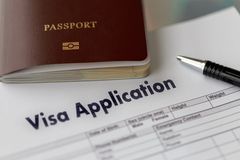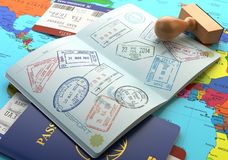In today’s world, traveling has become an integral part of our lives. Be it for leisure or work, many of us find ourselves regularly on the move across borders. However, one integral aspect that you may overlook is the safety of your travel documents. Losing these critical papers can turn a dream holiday into a
Visa Policy for Canada
On this page, you can check the visa policy of Canada for your nationality and discover the requirements you need to meet to travel to the country.
Check Canadian visa options for passport holders of your country by browsing the boxes below.
The Canadian visa policy determines who needs a visa or travel authorization to enter and who may enter the country without a visa. It also outlines the requirements for foreign citizens who do need a visa for Canada to travel to, enter, and remain within the country.
The Canadian immigration policy currently states that citizens of over 50 countries around the world are able to visit Canada visa-free. The majority of these travelers are required to register for an Electronic Travel Authorization (eTA) online before departure if entering Canada by air.
The Canada eTA is quick and easy to get. Travelers simply fill in a short online form and their visa-free journey will be authorized soon afterwards (usually within 24 hours).
The only exception is citizens or permanent residents of the United States, who are not required to obtain an eTA to travel to Canada.
All travelers who are not visa-exempt are required to apply for a visa from a Canadian government diplomatic office in their country of residence.
When applying for an embassy visa, it is necessary to indicate which of the different types of visa for Canada the applicant requires. This may be a Canadian visitor visa for tourism, a business visa, work visa, student visa, or transit visa to pass through on the way to an onward destination.
Travelers who do not need a visa for short stays, are required to apply for an embassy visa to travel to Canada for longer periods or purposes not permitted visa-exempt or with an eTA.
Below you will find a full list of travel visa restrictions for Canada. Browse the list to discover the requirements for your nationality. You can also check this page periodically to keep track of any Canadian immigration policy changes.




